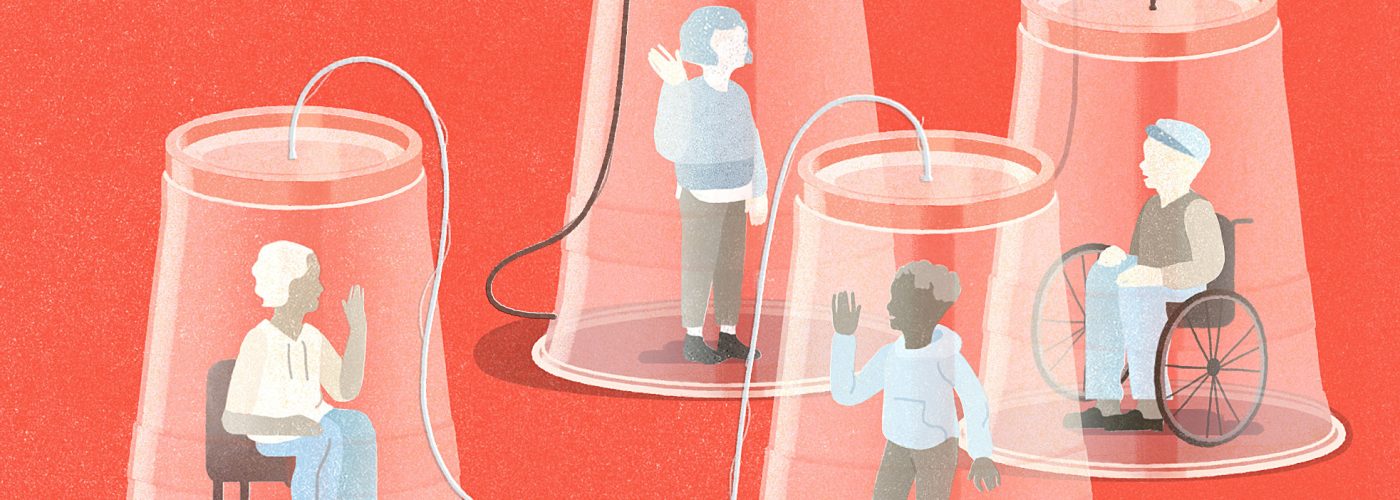Some tenants who are self-isolating because they are higher risk may face other challenges apart from the direct risk and impact of the virus, Agents are a key part of local communities and can provide housing and support to those in need.
Propertymark has joined forces with the Alzheimer’s Society to highlight issues those with dementia or vulnerable are facing aside from the unprecedented times the pandemic brings.
Even before Coronavirus, those living alone or with cognitive difficulties such as dementia may not know how or be able to get the essentials they need, such as food and medication. Some people, unable to visit local stores and with not enough delivery slots to accommodate the need, are finding they are not able to get food at all. This puts people at high risk of malnutrition, starvation, or other health issues caused by missing medication. Many people live alone with no relatives nearby to support and many will not have internet access, meaning they can’t order a food delivery or search for other local support.
These issues also greatly increase the risk of isolation and loneliness. Before Coronavirus, over a third of people with dementia said they felt lonely. Chronic loneliness is as bad for your health as smoking 15 cigarettes a day. Many people in self-isolation will not be having any social contact at all. The long-term effects of this could be devastating.
How agents, even if self-isolating, can offer extra support for vulnerable tenants who are also self-isolating
Considering the additional risks that vulnerable tenants may be facing, agents and landlords may wish to offer extra support to your tenants to help them keep safe and well during this time. While it is essential you make sure you are keeping safe yourself, you may be able to provide a lifeline to tenants who are isolated and scared. For many people, you might be their only local contact.
Help could include:
Assistance with receiving food and medicine
Many people are volunteering to assist with deliveries of these items. If you wish to do this, you should reach out to your tenants to offer your assistance and liaise with them as to the best method of delivering items without physical contact.
Agents and landlords can provide hands-off support by signposting them to other support. For example, they can make sure their tenants know about their local COVID Mutual-Aid community group or provide their tenants with the phone numbers for local shops and convenience stores so they can call up to place a delivery. Where tenants don’t feel confident placing their own deliveries, agents and landlords could offer to place the delivery on their behalf.
Remember that communication can be challenging for people with other conditions, such as dementia. Think about whether the best way to get in contact is by phone, email, or letter, and remember that not everyone is online.
Provide support by keeping in touch through regular phone calls, letters or emails just to touch base and have a chat
Don’t underestimate the importance of social contact during this time. For some tenants, this could be the only social interaction they have and just to touch base and have a chat could mean an awful lot to someone as social interaction is essential to maintain wellbeing.
Be proactive about getting in touch with your tenants as they may not approach you even if they need the help. But remember, it is essential that you are practicing social distancing through any of these activities.
Signposting
Agents and landlords can also signpost their tenants to other support, such as Alzheimer’s Society and Age UK, so they know who to call. Alzheimer’s Society is there to support anyone affected by dementia through this difficult time. If agents, landlords, or their tenants need advice, contact the Dementia Connect support line on 0333 150 3456 (open every day). For welsh speakers please call on 03300 947 400. Share this and other helplines with your tenants.
#VolunteersWeek
Propertymark Protected agencies across the UK have been pulling out all the stops and helping those in need during this difficult time. Follow us on Twitter and Facebook as we share the amazing things others are doing or share your generous work with us by tagging us in your posts.





